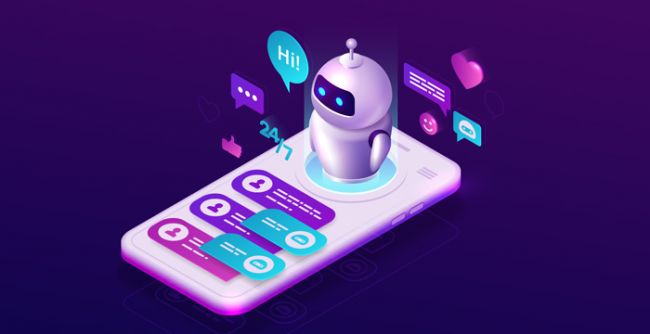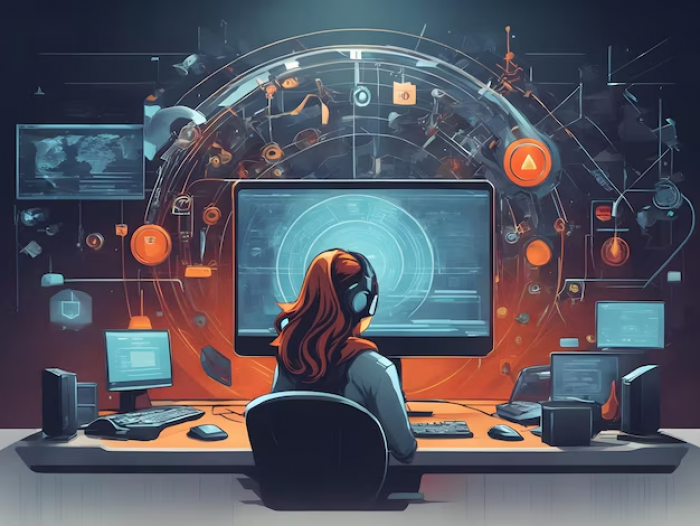Technology
4 min read
How AI Amazing Chatbot Tech Has Changed Our Lives Today


In the modern age, artificial intelligence (AI) has infiltrated every corner of our lives, and at the forefront of this revolution are AI chatbots. These intelligent programs are designed to simulate human conversation, and their rapid rise has been nothing short of transformative. From customer support to healthcare, AI chatbots are reshaping how we interact with technology and the world around us.
Gone are the days of sitting on hold for hours just to get help with a product or service. AI chatbots revolutionized customer support because they do support 24/7. Be it tracking a package, trying to book a flight, or fixing a billing issue, AI chatbots display instant responses and solutions. Companies like Amazon, banks, and airlines were taking the lead in integrating chatbots to improve customer satisfaction. These bots not only save the customers' time but also reduce the operational cost for businesses, hence win-win for all.

AI chatbots have become an essential part of workplace duty, serving as virtual assistants to handle schedules, remind about important dates, and even organize emails. Platforms like Slack and Microsoft Teams integrate the use of chatbots to ease communication and automate repetitive tasks, such as creating reports or tracking project updates. Taking care of these mundane responsibilities, the bots enable employees to pay more attention to work that requires creativity and strategic thinking, hence increasing their productivity.
AI chatbots make learning more personalized and accessible in education. With platforms like Duolingo, AI customizes lessons for learners, giving immediate feedback and encouragement. Students can now get homework help, learn new languages, or dive into complex topics with the help of a chatbot tutor. These AI tools ensure learning doesn't stop, no matter where one is or what time it is.
AI chatbots are also making waves in the healthcare industry. Virtual assistants like Woebot and Replika provide mental health support, giving users a safe space to share their feelings and guidance. In telemedicine, chatbots help screen symptoms, provide preliminary advice, and even remind patients to take their medication. Fitness bots encourage healthier lifestyles by tracking calorie intake, creating exercise routines, and monitoring progress. By making healthcare more accessible and affordable, chatbots are enabling people to take better care of themselves.
AI chatbots are functional but also fun. Many users go to AI sources to be entertained: chatbots tell stories, play games, role-play as virtual characters, or NSFW AI chatbots. There are chatbots for companionship, like Replika, offering emotional support, sometimes the only thing a lonely person needs is someone to talk to. Such bots have become virtual friends for some, blurring the lines of what human-AI interaction could be.
AI chatbots have opened new avenues of accessibility for people with disabilities. For visually or physically impaired people, voice assistants and screen-reading chatbots make the use of digital means easier. For elderly people, chatbots keep them company and care for their needs by reminding them when medication is due, scheduling an appointment with a doctor, or simply chatting with them.
Notwithstanding the many advantages, AI chatbots also come with a host of challenges. A major issue remains privacy, as chatbots collect and process vast amounts of users' private information. AI, even in its advanced state, still has difficulty understanding human emotions and then conveying them; miscommunication can occur. Too much reliance on these bots may reduce human interaction, raising questions about how we strike a balance between technology and our relations with humans.
With their ever-increasing integration into our lives, AI chatbots are just getting started. Future advances in natural language processing and machine learning will make these bots even more intuitive and emotionally intelligent. As AI continues to evolve, the possibilities of how chatbots could redefine human interaction are endless. Yet, a balance has to be struck: while embracing technology, it's very important not to lose the value of personal, human connections.
AI chatbots have changed our lives for good in ways that make life easier, more productive, and well-connected. From improving customer service to emotional support, these intelligent tools mark the power of technology. Moving into the future that is being crafted through AI, the question lingers: how do we make this amazing technology serve the best interest of humanity?
Be the first to post comment!